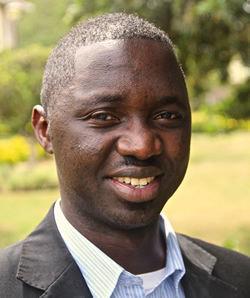
A Call for Greater Multilateral Cooperation on Migration
António Guterres | November 23, 2015
Responding To: Head of U.N. Refugee Agency Calls for Greater Multilateral Cooperation on Migration
Alex Rohlwing
As UNHCR Commissioner Guterres discusses in the post above and in his speech, the number of refugees is climbing to increasingly staggering heights every day. For some perspective, Georgetown University has just shy of 20,000 enrolled students. Solely due to conflict, each day more than twice this many people are displaced, forced by violence to flee from their homes to another nation.
Recently, the conflict in Syria and the resulting refugee crisis in Europe has captured the world’s attention. However, as the High Commissioner pointed out in his speech, the $137 million given in less than a month to help the Syria situation has not been matched in any significant form for other refugee groups. Just as with any disaster or crisis, the flashy issue gets funding, donations, and lines of volunteers. It is the ongoing issues, refugees displaced by long-term conflicts, instability, economic issues, and other reasons, that are easily ignored and soon forgotten. Finding the monetary, problem-solving, and resource capitals to address these ongoing issues is the difficult part.
The European refugee crisis is occurring in and around the European Union, a body that High Commissioner Guterres says has over half a billion citizens and under a million refugees. Certainly an influx of over 700,000 displaced persons is a huge crisis, but the High Commissioner helped contextualize these numbers by comparing them to Lebanon, a nation where refugees are currently a quarter of the population. Lebanon, a nation with a GDP per capita of around US$10,000, is facing a refugee influx that has them approaching 1.3 million refugees this year, in a single country with just shy of four and a half million people (with a significant loss in citizens each year due to migration to other countries, possibly exacerbated by the refugee influx and resulting economic stresses). In comparison, the EU has a per capita GDP of over US$35,000 with an astronomically lower ratio of refugees. While the refugee populations are currently concentrated in the Eastern parts of the EU, the system in Europe is economically and structurally better suited to absorbing these populations than a single, small nation like Lebanon.
There are many other nations like Lebanon whose systems are far over-taxed by refugees or IDPs but draw far less funding than the current situation in the EU. While the issues in Europe need to be addressed, pointing global attention to other, less well known situations is critical.
Alex Rohlwing is a student in Georgetown's M.A. program in conflict resolution

António Guterres | November 23, 2015

Emmanuel Foro | November 23, 2015

Lina Zdruli | November 23, 2015

Patrice Ndayisenga | November 23, 2015

Patrick Griffith and Jennifer Podkul | November 23, 2015

Susan Martin | November 23, 2015

Tobias Vestner | November 23, 2015